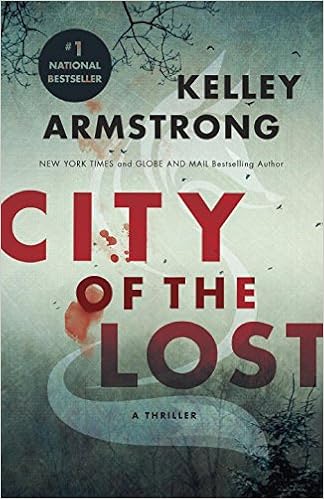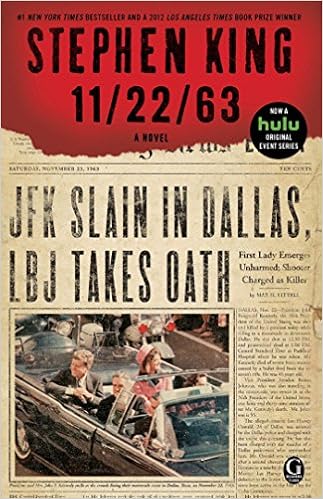Casey Duncan is a police detective who wants to help her friend Diana
escape an abusive ex-husband. They apply
to be accepted into Rockton, a remote settlement in the Yukon. Described as “a commune of lost souls” (117),
Rockton has a population of 200 people seeking a safe haven. Diana is accepted on the condition that Casey
agree to serve as detective. In Rockton,
Casey assists the local sheriff, Eric Dalton, to solve some gruesome
killings.
The idea of a totally-off-the-grid village in an isolated part of the
world is intriguing, but not very realistic.
There is no running water, electricity, cell phones, radios, or
television. Casey is told that “’Structural
camouflage hides the town from the rare bush plane passing overhead. Tech covers the rest’” (56). When Casey flies over the town, she mentions,
“The buildings . . . it’s hard to explain, but I don’t see most of the
buildings, just a clearing with a few wooden structures” (76). No kidding, that would be difficult to
explain, as would the “blocking system that keeps passing planes from picking
up the town’s footprint” (76). When
Casey first hears about Rockton, she dismisses it as an urban legend: “’Think about it. An invisible town? In today’s world, you’re never really off the
grid’” (34). That’s exactly the problem,
and the information given about Rockton does little to help me accept its existence
except as “’fantasy bullshit’” (34). There
is some discussion of the economy and security but how about medical emergencies? All Rockton has is “’a damn fine doctor’”
(70)? Also, considering the number of
people who know about the town, keeping its existence a secret is implausible.
Kelley Armstrong is probably best known for her contemporary fantasies
with supernatural characters, and there is an almost supernatural eeriness in
the setting of this novel. The residents
of Rockton are told not to venture into the surrounding woods without an armed
escort because those woods have many dangers, including the hostiles, “’Those
who lost something when they left Rockton – lost their humanity and ultimately
reverted to something animalistic’” (117).
Unfortunately, such horror elements have little appeal for me.
Characterization is a problem because of inconsistencies. Casey supposedly has an impressive record as
a homicide detective (70) yet she makes so many mistakes that she herself
wonders “Is it possible to screw up more than I have in the last few days”
(47)? There is nothing that she does
during the investigations that shows her to be particularly astute. In fact, her investigating is described very
vaguely; there are statements like “I continue interviewing people all day, but
I don’t get much farther” (396) and “I have three interviews scheduled and two
additional people show up, not with anything significant to add” (421).
Casey is not the only problem character. It is difficult to see Dalton as the romantic
hero. What’s with him? He tells Casey he jumped at the opportunity
to have a homicide detective with her record of success (70) though when he first
meets her he says, “’I need a detective, but I don’t want you. End of discussion’” (55). Dalton usually speaks only in grunts; his
favourite word, when he actually speaks, is “Fuck”!? This sheriff, who is not beyond using rough tactics,
starts behaving like a love-sick teenager?
The romance, of course, is expected.
It is very formulaic. When they
first meet, they argue, but then it becomes obvious that they are attracted to
each other. Inevitably, they can’t control
their emotions and desires and have very satisfying sex.
On the other hand, the solution to the murders is unexpected because
there have been insufficient clues. When
there are clues, like the discussion of the Salem witch trials (418), they are
rather contrived. The reader is not made privy to Casey’s thinking about the
case so at the end there is a big information dump where she explains to the
killer what the killer did! How did
Casey learn about the killer’s movements (454)?
Considering the nature and number of killings, the motivation of the killer
seems rather weak. The explanation that “In
some part of us, there is absolute darkness, as much as we wish otherwise”
(262) seems an attempt to strengthen the justification for the murderer.
I appreciated the Canadian setting, but it seems that it was used only
to emphasize remoteness. For an American
audience the Yukon might seem even more remote than Alaska. There
are other Americanizations which bother me.
For example, Canada does not have sheriffs the way that the U.S.
does. Likewise, the three-strike law
(30) does not exist per se in Canada, except for sexual predators.
This novel is escapist literature and can be enjoyed if it is approached
as such. Head for the beach and turn off
rational thinking. Unfortunately, I find
it difficult to enjoy a book when I have to gloss over so many weaknesses.






